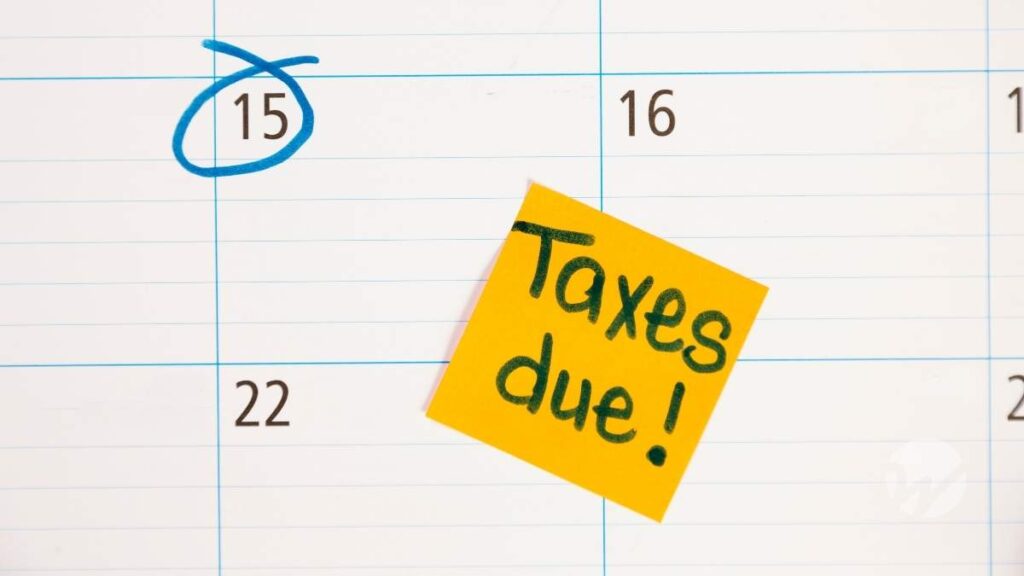The next quarterly tax payment is due on September 15th.
If you make quarterly estimated tax payments, the amount you owe may be affected by the One Big Beautiful Bill Act (OBBBA). The law, which was enacted on July 4, 2025, introduces new deductions, credits and tax provisions that could shift your income tax liability this year.
Tax Basics
Federal estimated tax payments are designed to ensure that certain individuals pay their fair share of taxes throughout the year.
If you don’t have enough federal tax withheld from your paychecks and other payments, you may have to make estimated tax payments. The most common mistake is that only self-employed individuals need to make estimated payments but it’s anyone whose income isn’t fully covered by withholding. This is the case if you receive interest, dividends, self-employment income, capital gains, a pension or other income that’s not covered by withholding. Employees with side incomes such as rental properties and individuals with alimony are also included.
Individuals generally must pay 25% of a “required annual payment” by April 15, June 15, September 15, and January 15 of the following year, to avoid an underpayment penalty. If one of those dates falls on a weekend or holiday, the payment is due on the next business day. It is best practice to check the IRS calendar.
The third installment for 2025 is due on Monday, September 15. Payments are made using Form 1040-ES.
Amount to Be Paid
The required annual payment for most individuals is the lower of 90% of the tax shown on the current year’s return or 100% of the tax shown on the return for the previous year. However, if the adjusted gross income on your previous year’s return was more than $150,000 ($75,000 if you’re married filing separately), you must pay the lower of 90% of the tax shown on the current year’s return or 110% of the tax shown on the return for the previous year.
Most people who receive the bulk of their income in the form of wages satisfy these payment requirements through the tax withheld from their paychecks by their employers. Those who make estimated tax payments generally do so in four installments. After determining the required annual payment, divide that number by four and make four equal payments by the due dates.
But you may be able to use the annualized income method to make smaller payments. This method is useful to people whose income flow isn’t uniform over the year, perhaps because of a seasonal business. For example, if your income comes exclusively from a business operated in a resort area during June, July and August, no estimated payment is required before September 15.
Starting October 1, 2025, the IRS will no longer accept paper checks for federal tax payments. All payments must be made electronically using approval platforms like IRS Direct pay and Electronic Federal Tax Payment System.
The Underpayment Penalty
If you don’t make the required payments, you may be subject to an underpayment penalty. Filing extensions does not exempt individuals from paying tax on the deadline. The penalty equals the product of the interest rate charged by the IRS on deficiencies times the amount of the underpayment for the period of the underpayment.
However, the underpayment penalty doesn’t apply to you if:
- The total tax shown on your return is less than $1,000 after subtracting withholding tax paid;
- You had no tax liability for the preceding year, you were a U.S. citizen or resident for that entire year, and that period was 12 months;
- For the fourth (January 15) installment, you file your return by that January 31 and pay your tax in full; or
- You’re a farmer or fisherman and pay your entire estimated tax by January 15 or pay your entire tax and file your tax return by March 2, 2026.
In addition, the IRS may waive the penalty if the failure was due to casualty, disaster or other unusual circumstances, and it would be inequitable to impose the penalty. The penalty can also be waived for reasonable cause during the first two years after you retire (and reach age 62) or become disabled.
OBBBA Highlights
Several provisions of the OBBBA could directly affect quarterly estimated tax payments because they change how much tax some individuals will ultimately owe for the year. For example, the law introduces a temporary (2025 through 2028) additional $6,000 deduction for seniors, which can lower taxable income. It creates new deductions for overtime pay, tips and auto loan interest — available even if you don’t itemize — which can meaningfully reduce estimated liabilities. The bill also increases the state and local tax deduction cap for certain taxpayers and temporarily enhances the Child Tax Credit. Because these deductions and credits apply during the tax year rather than after, they can reduce your quarterly payment obligations mid-year, making it important to recalculate estimates to avoid overpayment or underpayment penalties. Watch a recording of our OBBBA Tax Update here.
Plan Ahead
Whether you’re a wage earner, retiree, parent, or investor, the OBBBA brings significant changes that could affect your tax bill in the years ahead. While many provisions offer continued or expanded relief, others (like charitable giving caps and reduced deductions) may require a closer look during year-end planning.
The Wegner CPAs Tax Advisors are here to help you understand what’s changed, what’s permanent, and what’s time-sensitive. Reach out today to assess how the new law affects your personal tax situation, and let us help you put a proactive strategy in place. Stay tuned for continued updates and insights as implementation unfolds.


